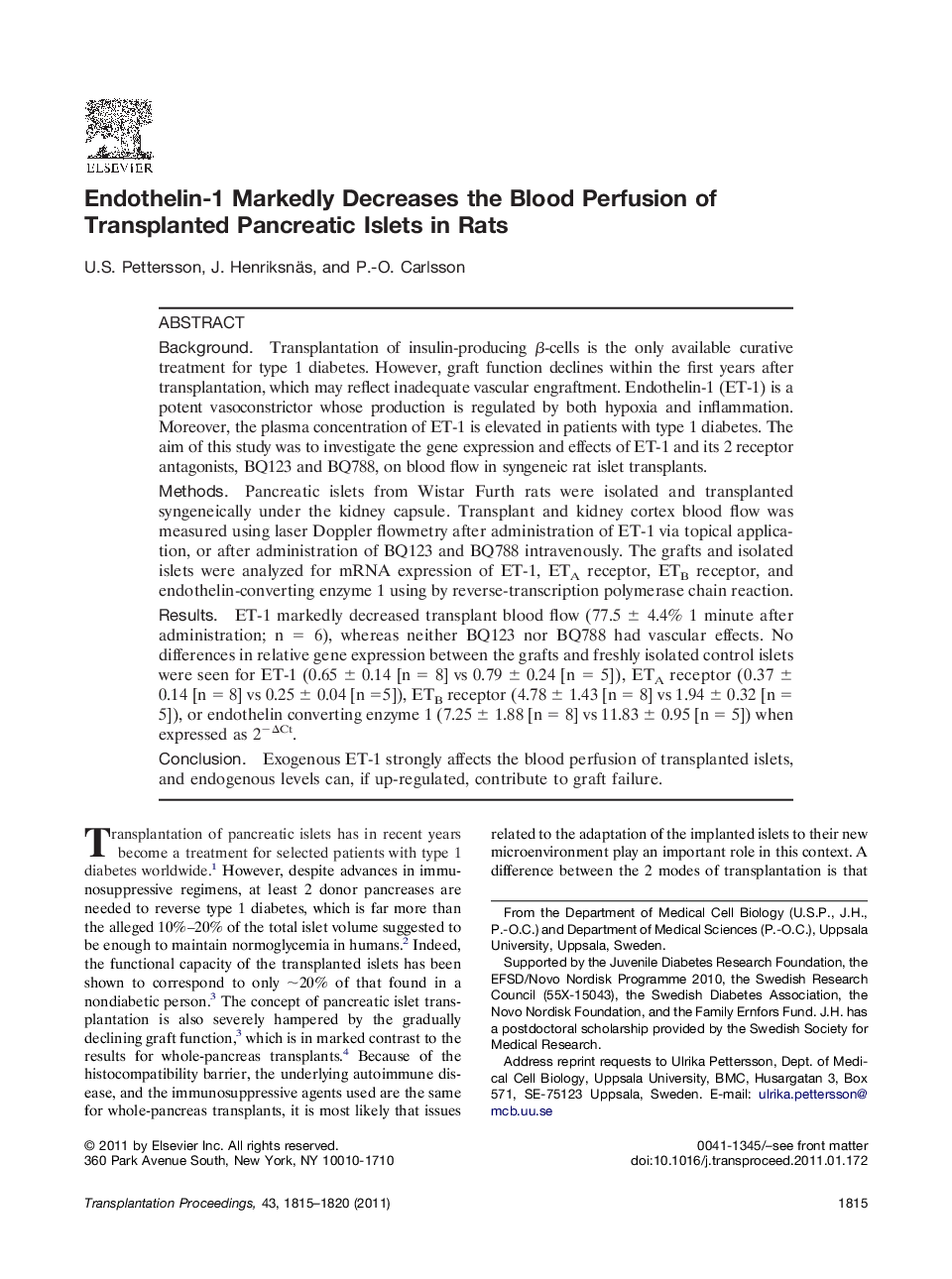| Article ID | Journal | Published Year | Pages | File Type |
|---|---|---|---|---|
| 6249344 | Transplantation Proceedings | 2011 | 6 Pages |
BackgroundTransplantation of insulin-producing β-cells is the only available curative treatment for type 1 diabetes. However, graft function declines within the first years after transplantation, which may reflect inadequate vascular engraftment. Endothelin-1 (ET-1) is a potent vasoconstrictor whose production is regulated by both hypoxia and inflammation. Moreover, the plasma concentration of ET-1 is elevated in patients with type 1 diabetes. The aim of this study was to investigate the gene expression and effects of ET-1 and its 2 receptor antagonists, BQ123 and BQ788, on blood flow in syngeneic rat islet transplants.MethodsPancreatic islets from Wistar Furth rats were isolated and transplanted syngeneically under the kidney capsule. Transplant and kidney cortex blood flow was measured using laser Doppler flowmetry after administration of ET-1 via topical application, or after administration of BQ123 and BQ788 intravenously. The grafts and isolated islets were analyzed for mRNA expression of ET-1, ETA receptor, ETB receptor, and endothelin-converting enzyme 1 using by reverse-transcription polymerase chain reaction.ResultsET-1 markedly decreased transplant blood flow (77.5 ± 4.4% 1 minute after administration; n = 6), whereas neither BQ123 nor BQ788 had vascular effects. No differences in relative gene expression between the grafts and freshly isolated control islets were seen for ET-1 (0.65 ± 0.14 [n = 8] vs 0.79 ± 0.24 [n = 5]), ETA receptor (0.37 ± 0.14 [n = 8] vs 0.25 ± 0.04 [n =5]), ETB receptor (4.78 ± 1.43 [n = 8] vs 1.94 ± 0.32 [n = 5]), or endothelin converting enzyme 1 (7.25 ± 1.88 [n = 8] vs 11.83 ± 0.95 [n = 5]) when expressed as 2âÎCt.ConclusionExogenous ET-1 strongly affects the blood perfusion of transplanted islets, and endogenous levels can, if up-regulated, contribute to graft failure.
